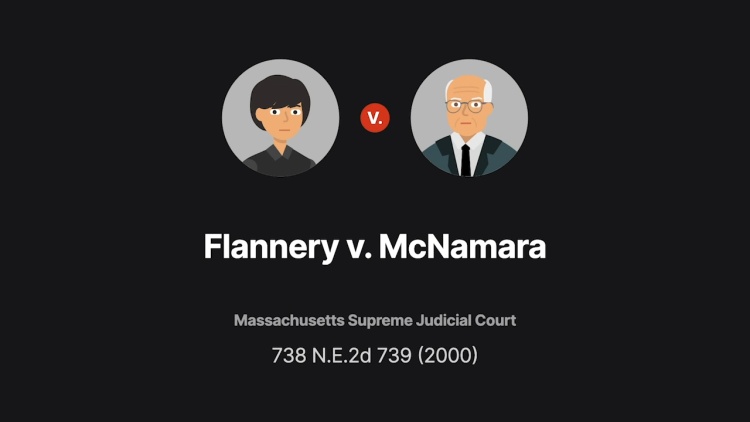Flannery v. McNamara
Massachusetts Supreme Judicial Court
738 N.E.2d 739 (2000)

- Written by Sean Carroll, JD
Facts
William White’s will left all of his property to his wife, Katherine White. However, Katherine predeceased William, and the will did not name any contingent beneficiaries and did not contain a residual clause. White’s attorney, Paul McNamara (defendant), was the administrator of White’s estate and began preparing the estate for distribution by intestacy to White’s cousins (heirs) (defendants). Helen Flannery and Margaret Moran (Flannerys) (plaintiffs), Katherine’s sisters, filed a petition for will reformation to effectuate White’s intent that they receive his property. The Flannerys stated that, unlike the heirs, they had a close relationship with White and that White had in fact told the Flannerys that his house and belongings would be theirs someday. The probate court granted the heirs’ motion for summary judgment. The Flannerys appealed.
Rule of Law
Issue
Holding and Reasoning (Ireland, J.)
Concurrence (Greaney, J.)
What to do next…
Here's why 907,000 law students have relied on our case briefs:
- Written by law professors and practitioners, not other law students. 47,100 briefs, keyed to 996 casebooks. Top-notch customer support.
- The right amount of information, includes the facts, issues, rule of law, holding and reasoning, and any concurrences and dissents.
- Access in your classes, works on your mobile and tablet. Massive library of related video lessons and high quality multiple-choice questions.
- Easy to use, uniform format for every case brief. Written in plain English, not in legalese. Our briefs summarize and simplify; they don’t just repeat the court’s language.





